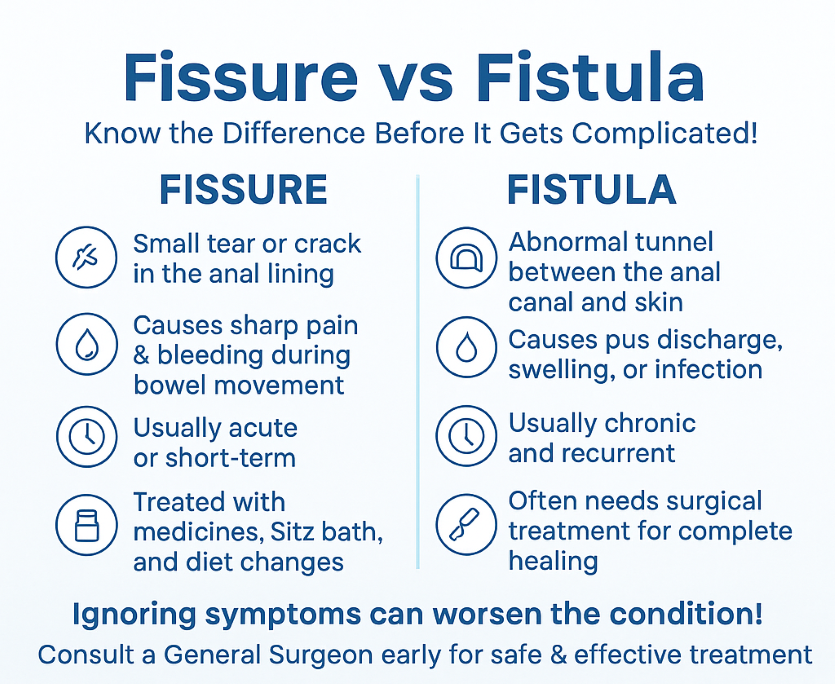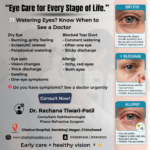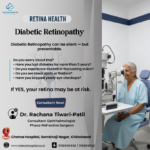Many people experience pain, itching, or discharge in the anal region but hesitate to talk about it due to embarrassment. As a result, minor issues often become chronic and complicated over time. Two of the most common anorectal conditions that are often confused with each other are anal fissure and anal fistula.
While both affect the same area and cause discomfort, they are very different in nature, causes, and treatment. Understanding the difference can help you seek timely medical advice and avoid complications.
🔹 What is an Anal Fissure?
An anal fissure is a small tear or cut in the lining of the anal canal. It is one of the most common causes of severe pain and bleeding during bowel movements.
Imagine a paper cut on your skin — a fissure is somewhat similar, but it occurs in the delicate tissue around the anus.
Common Symptoms of Anal Fissure:
- Sharp pain during or after passing stool
- Bleeding (usually bright red on toilet paper)
- Burning or itching sensation near the anus
- A visible tear or crack in the anal area
- Spasm of the anal muscles causing difficulty in passing stool
Causes of Anal Fissure:
- Passing hard stools due to constipation
- Straining during bowel movements
- Chronic diarrhea
- Childbirth (in women)
- Low-fiber diet or dehydration
- Certain inflammatory conditions like Crohn’s disease
Types of Fissures:
- Acute Fissure: Short-term, heals within a few weeks with medication and lifestyle changes.
- Chronic Fissure: Persists for more than 6 weeks and may need surgical treatment like lateral sphincterotomy.
Treatment for Anal Fissure:
Most fissures heal with non-surgical methods:
- High-fiber diet and increased water intake
- Stool softeners to reduce strain
- Warm Sitz baths for 10–15 minutes daily
- Local ointments to relax anal muscles and relieve pain
If these do not help, your surgeon may recommend a minor surgery to relieve muscle tightness and promote healing.
🔹 What is an Anal Fistula?
An anal fistula is an abnormal tunnel that forms between the inner anal canal and the outer skin near the anus.
It usually occurs after an infection in one of the anal glands, which leads to an abscess. When that abscess drains or bursts, it may leave behind a small tract — this is the fistula.
Common Symptoms of Anal Fistula:
- Persistent pus or discharge from a small opening near the anus
- Swelling or redness around the anus
- Pain or discomfort while sitting
- Recurrent abscess formation
- Sometimes fever or general tiredness due to infection
Causes of Anal Fistula:
- Untreated or recurrent anal abscess
- Crohn’s disease
- Tuberculosis or other infections
- Post-surgical or post-traumatic complications
Unlike fissures, fistulas rarely heal on their own and almost always require surgical intervention.
🔹 Key Differences Between Fissure and Fistula
| Aspect | Anal Fissure | Anal Fistula |
|---|---|---|
| Definition | A small tear in the anal lining | An abnormal tunnel between the anal canal and skin |
| Cause | Constipation, straining, injury | Infection, abscess, Crohn’s disease |
| Pain | Sharp, intense pain during stool | Dull, throbbing pain with swelling and pus |
| Bleeding | Common, especially during bowel movement | Usually absent, but discharge may occur |
| Discharge | Rare | Frequent pus or foul-smelling discharge |
| Treatment | Often heals with medicines & Sitz bath | Requires surgical treatment |
| Nature | Acute or short-term | Chronic and recurring |
🔹 Why Early Consultation is Important
Both fissure and fistula start with mild symptoms that are easy to ignore. However, delaying consultation can cause serious complications.
If a Fissure is Ignored:
- It can turn chronic
- The tear deepens and becomes harder to heal
- Pain and bleeding may increase
- Muscle spasms can worsen constipation
If a Fistula is Ignored:
- Infection may spread to nearby tissues
- Multiple tracts (complex fistula) can form
- Recurrent abscesses cause severe pain and fever
- The longer you wait, the more complex the surgery becomes
Therefore, consulting a General Surgeon early ensures proper diagnosis and treatment before complications arise.
🔹 Diagnosis
A General Surgeon or Proctologist can easily diagnose these conditions through a simple clinical examination.
For Fissure:
Usually diagnosed by visual inspection and symptom discussion.
For Fistula:
May require further tests like:
- MRI Fistulogram
- Ultrasound scan
- Proctoscopy or Sigmoidoscopy
These tests help in identifying the depth and direction of the fistula tract.
🔹 Treatment Options
For Anal Fissure:
- Conservative Management:
- High-fiber diet
- Plenty of fluids
- Sitz baths
- Topical creams (like nitroglycerin or calcium channel blockers)
- Surgical Options (if chronic):
- Lateral Internal Sphincterotomy (LIS): The gold-standard surgery to reduce muscle tightness and help healing.
- Botox Injections: For patients who wish to avoid surgery.
For Anal Fistula:
Surgery is almost always necessary to remove the infected tract and allow proper healing.
Common Surgical Treatments Include:
- Fistulotomy: Opening the entire fistula tract for drainage and healing.
- Seton Placement: A thread-like material is placed to gradually cut and heal the tract.
- Laser Fistula Treatment (FiLaC): A modern, minimally invasive approach with faster recovery.
- LIFT Procedure (Ligation of Intersphincteric Fistula Tract): Preserves sphincter muscles and prevents incontinence.
Your surgeon will decide the best procedure based on the type and complexity of your fistula.
🔹 Lifestyle and Prevention Tips
- Eat a fiber-rich diet (fruits, vegetables, whole grains)
- Drink 8–10 glasses of water daily
- Avoid straining during bowel movements
- Exercise regularly to prevent constipation
- Maintain good anal hygiene
- Do not ignore symptoms like pain, discharge, or bleeding
🔹 When to See a Doctor
You should consult a General Surgeon immediately if you experience:
- Pain or bleeding during bowel movements
- Pus or discharge near the anal area
- Recurrent abscess formation
- Persistent itching or swelling around the anus
Early diagnosis ensures effective treatment and prevents long-term complications.
👨⚕️ Expert Surgical Care at Chetna Hospital
At Chetna Hospital, Chinchwad, Dr. Dhananjay Patil, an experienced General Surgeon, offers advanced and painless treatments for fissure, fistula, and other colorectal conditions.
With modern diagnostic tools and minimally invasive techniques, patients experience faster recovery, less pain, and better outcomes.
If you notice any of the above symptoms, don’t delay consultation — timely surgical advice can make all the difference.













